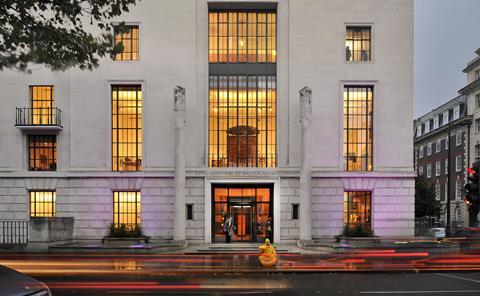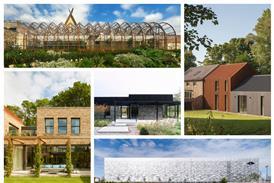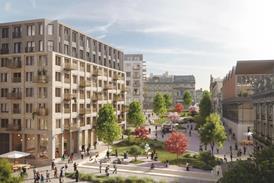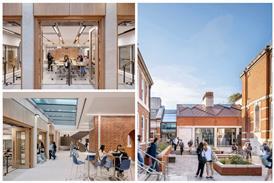Institute and built-environment counterparts pledge to continue collaborating to tackle global instability

RIBA has renewed its vow to collaborate with other UK built-environment organisations to support some of the world’s poorest countries to urbanise sustainably.
The institute and other members of the UK Built Environment Advisory Group – including the Royal Town Planning Institute – have committed to work together for at least another five years in a bid to try and tackle urgent global challenges.
The grouping, known as UKBEAG, makes its joint expertise accessible to governments, humanitarian agencies and development partners at the front-line of delivering sustainable development.
RIBA said almost 70% of the world’s population was predicted to live in cities by 2050, but many of the nations that are urbanising the most rapidly do not have enough professional capacity to endsure the growth is sustainable.

It cited Uganda as an example, and pointed to 2018 research suggesting that the nation – which is urbanising six times faster than the UK – had just five architects and 50 engineers per million citizens. The figure compares with 600 architects per million citizens in the UK.
RIBA chief executive Valerie Vaughan-Dick said it was vital for UK built-environment professionals to step up to the plate.
“The built environment is a huge carbon emitter, so if we are to protect the long-term future of our planet, urbanisation must be sustainable,” she said. “Architects and other built environment professionals must work together to play an essential role in achieving this.
“As we face a global environmental crisis, RIBA must do what it can to support sustainable urbanisation by sharing knowledge, technical expertise and influence wherever it is needed, just as we too learn from others across the world.
“This renewed pledge demonstrates great ambition, and I look forward to working with our partner institutes to lead by example, combining our strengths to make a real difference.”
UKBEAG, which was originally created in 2016, also includes the Institution of Structural Engineers and the Landscape Institute.
The group’s core activities include: capacity-development and knowledge-sharing; climate action; developing educational and professional standards; skills development; supporting continuing professional development; contributing to government policy; promoting good practice; and supporting individual practitioners.
















No comments yet